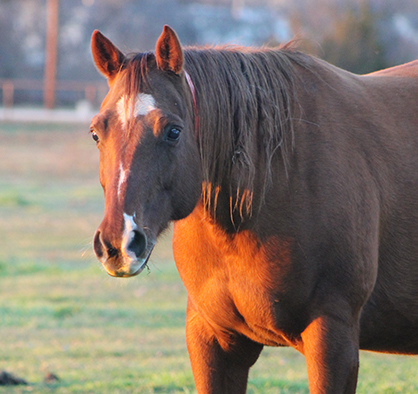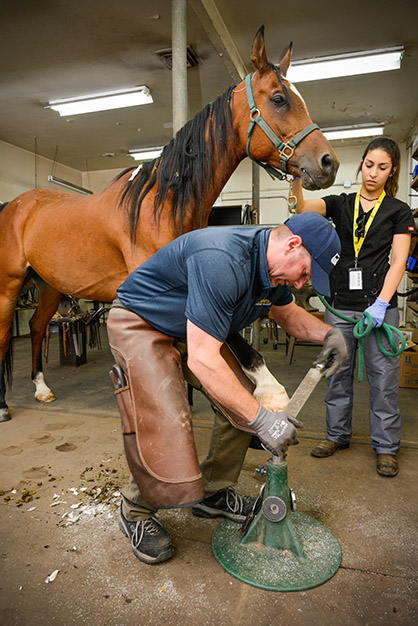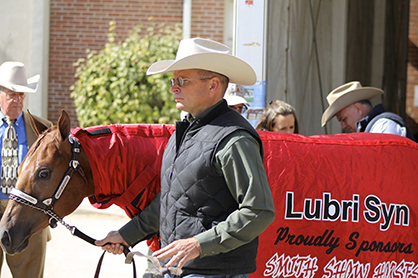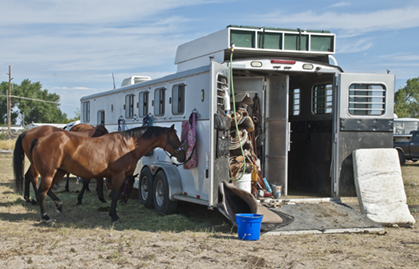Underweight: Solutions For the Hard Keeper
January 3, 2017 Comments Off on Underweight: Solutions For the Hard Keeper
The most common reason for weight loss is poor teeth. Watch your horse while eating – does he drop a lot of food; does he spit out clumps of partially chewed grass or hay? His teeth or gums may need attention. If your horse is getting up in years, tooth loss may be issue.
Continue reading …Winter Management For the Older Horse
January 2, 2017 Comments Off on Winter Management For the Older Horse
“The stable environment invariably presents challenges of dust, mould and proper ventilation,” says Susan Raymond, instructor of Equine Guelph’s Management of the Equine Environment online course.
Continue reading …Farrier and Vet Join Up For Lecture and Demonstration at UC Davis
December 29, 2016 Comments Off on Farrier and Vet Join Up For Lecture and Demonstration at UC Davis
The hands-on afternoon session will include a shoeing demonstration by Burns during which the two primary methods to glue horse shoes to horses’ hooves—“direct glue” and “indirect glue” methods—will be explained in detail. Burns will then team up with Dr. Pleasant again to present a shoeing and hoof wall repair laboratory. The afternoon session has a limited capacity (40), so early registration is strongly encouraged.
Continue reading …What to Expect When You Suspect Ulcers
December 28, 2016 Comments Off on What to Expect When You Suspect Ulcers
The first thing to know is that a gastroscopy is the most definitive way to diagnose equine stomach ulcers. While your horse might be showing the tell-tale signs of the condition—such as poor body condition, decreased appetite, chronic colicking or poor performance—the only way to know for sure is by performing a gastroscopy. The quicker you know what you’re dealing with, the faster a treatment plan can be made.
Continue reading …
Shod feet can be-come ice packed, increasing the chance for slipping on snow and ice. Additionally, most horses have better traction on icy ground when shoes are removed.
Continue reading …Effects of Therapeutic Horseback Riding on PTSD in Combat Veterans
December 27, 2016 Comments Off on Effects of Therapeutic Horseback Riding on PTSD in Combat Veterans
Participants reported feeling anxious, depressed and isolated prior to the intervention. Post intervention responses indicated feelings of self- acceptance, increased confidence, gratitude, hope, reduced anxiety and anger, and increased patience.
Continue reading …
While the process is directed by the change in daylight, external temperatures will also play somewhat of a role, in that a horse that is blanketed early will not develop as thick a coat.
Continue reading …To Blanket or Not to Blanket: That is the Question
December 23, 2016 Comments Off on To Blanket or Not to Blanket: That is the Question
If you do blanket, remember that a horse’s fur fluffs out when it’s cold. This adds air space, like your down jacket has, and that air fills with warmth making the fur more efficient. Blankets crush down that air space, so you need a heavy enough blanket to provide true warmth. A thin sheet may protect a horse from rain, but it may not provide much warmth and may leave the horse colder than if he had no blanket.
Continue reading …Shipping Wraps and When to Use Them
December 22, 2016 Comments Off on Shipping Wraps and When to Use Them
According to some studies, the tissue under the wrap, along with tendons, can potentially overheat in hot weather.
Continue reading …Winter Horse Management: Don’t Forget Electrolytes
December 21, 2016 Comments Off on Winter Horse Management: Don’t Forget Electrolytes
Horse owners often associate electrolyte supplementation with warm weather, however, this actually has nothing to do with seasons. The provision of electrolytes depends entirely on the amount of work and sweat loss taking place, so for certain horses supplementation is important every season.
Continue reading …







